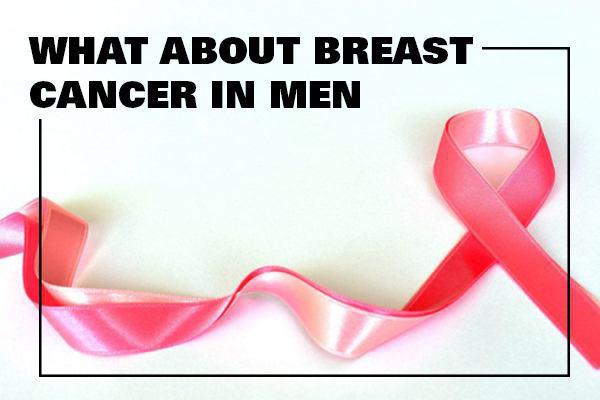What About Breast Cancer in Men

When we think of breast cancer, the prevailing thought is that it only applies to women. This, however, is not true. Men also experience breast cancer, even though it is much less common with only approximately 1% of all breast cancers occurring in men. In 2019, about 2,670 men are expected to be diagnosed with this disease. For men, the lifetime risk of being diagnosed with breast cancer is about 1 in 1,000.
Though men do not have what we typically think of as breasts from a physical perspective, they do still have breast tissue. Men typically will not grow entire breasts because of the lack of breast-stimulating hormones. As a result, their breast tissue usually stays flat and small. Men can sometimes develop real breast gland tissue because they take certain medicines or have abnormal hormone levels.
What Increases the Odds of Male Breast Cancer
- When the man is between the ages of 60 and 70
- A close female relative has breast cancer
- History of radiation exposure of the chest
- Enlargement of breasts (called gynecomastia) from drug or hormone treatments, or even some infections and poisons
- Taking estrogen
- When the man has Klinefelter’s syndrome, a rare genetic condition
- Severe liver disease, called cirrhosis
- Diseases of the testicles such as mumps orchitis, a testicular injury, or an undescended testicle
Symptoms of Breast Cancer in Men
Breast cancer symptoms in men are similar to those in women. A lump in the breast area is a symptom of breast cancers in men. Other symptoms can include nipple abnormalities such as inversion or nipple discharge which could even include blood. When this happens it is important to see your physician as soon as possible to be properly assessed to avoid any delay in diagnosis.
Diagnosis and Treatment
We use the same techniques that are used to diagnose breast cancer in women to diagnose men. These include physical exams, mammography, and biopsies. In addition, we employ the same forms of treatment for female breast cancer — surgery, radiation, chemotherapy, biological therapy, and hormone therapy — to treat breast cancer in men. The one major difference is that men with breast cancer respond much better to hormone therapy than women do. About 90% of male breast cancers have hormone receptors, meaning that hormone therapy can work in most men to treat the cancer.
Hunterdon Hematology and Oncology, as part of the Hunterdon Regional Breast Care Program (HRBCP), specializes in a coordinated approach to breast cancer care, in both men and women. If you or someone you know is in need of breast cancer care, contact us today to schedule a consultation

